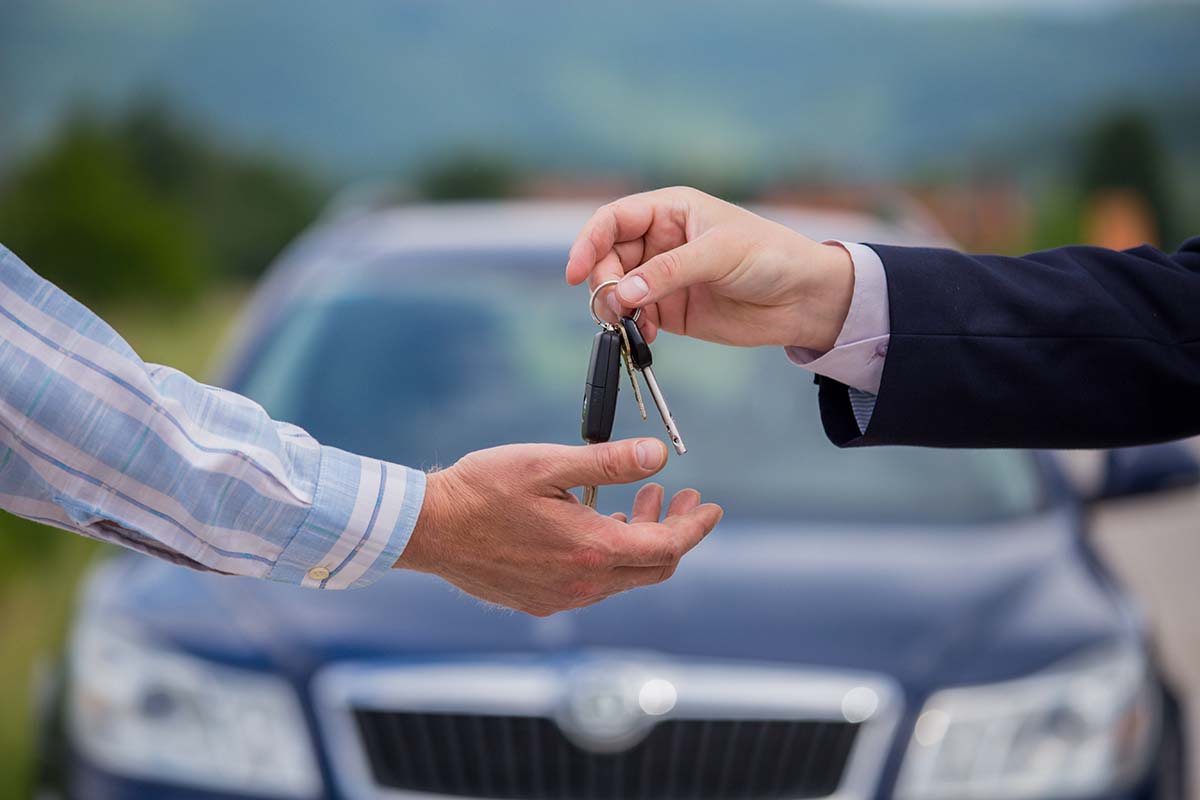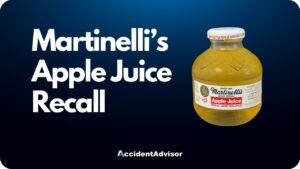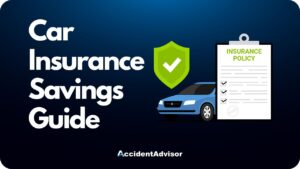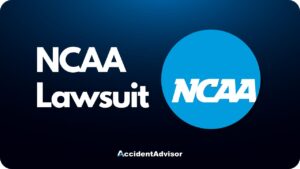A car accident is never a simple ordeal, but what happens if someone gets in an accident while driving your car? You may be wondering how the insurance company will cover the costs of the accident, or what you could be liable for if the accident caused personal injury or property damage.
If someone wrecked your car, don’t wait to file for compensation. Continue reading to learn about the process of filing and settling, including why you should consult an experienced car accident attorney when someone else wrecks your car.
Table of Contents
- What To Do After Someone Else Has an Accident in Your Car?
- Who is Liable if the Driver of My Car was at Fault for an Accident?
- Who is Liable if Someone Driving My Car Gets into an Accident that Was Not Their Fault?
- What is Permissive Use?
- What is Non-Permissive Use?
- How to Prove Whether You Gave Permission to Someone that Wrecked Your Car
- How to File an Insurance Claim When Someone Else Had an Accident in Your Car
- How Long After an Accident Can You File a Claim?
- What Happens if You Don’t Report a Car Accident?
- How a Lawyer Can Help if Someone Has an Accident While Driving Your Car
- Summary
What To Do After Someone Else Has an Accident in Your Car?
If someone gets in an accident while driving your car, your next steps are crucial to keeping everyone safe and staying on the right side of the law. If you are aware of the accident, call 911 right away to report it. If you can get to the scene or you were a passenger in the car, collect information from the scene of the accident, including:
- The other driver’s ID, insurance, and car information
- Photos of the scene, including damage to vehicles and property
- Contact information from witnesses or records of their statements
- Police information so you can get a copy of the report later
As soon as you’re able, report the accident to your insurance company. Remember that the insurance policy on a vehicle is attached to the vehicle, not the driver. So if someone wrecked your car, your insurance plan is still the relevant coverage with only a few exceptions (see below).
Who is Liable if the Driver of My Car was at Fault for an Accident?
Fault and liability are even messier issues when someone gets in an accident while driving your car. You may be Googling “legal advice someone else driving my car” to figure out how to calculate damages, but the truth is that fault and liability differ between states. Knowing the regulations of the state in which someone wrecked your car is crucial to understanding your next steps.
For example, many states are considered “at-fault” states, meaning the driver determined to be the cause of the accident shoulders the liability. If the friend that drove your car is determined to be at fault, it would be your responsibility to file a claim with your insurer, pay the deductible on your plan, and pay for any premium increases resulting from having a crash on the vehicle’s record.
What if the Person Driving Your Car Has Their Own Insurance?
Since insurance plans follow vehicles rather than drivers, the person who wrecks your car may or may not have an insurance plan because they might not have a car. If they do, however, their insurance policy would pay for the damages that are over the limits of your policy.
There are a few exceptions to this, however, depending on your own exclusions and the status of your vehicle (see “non-permissive use” below).
Who is Liable if Someone Driving My Car Gets into an Accident that Was Not Their Fault?
If you find yourself in the situation of “someone else driving my car” in an at-fault state, you may be wondering what would happen in an accident that wasn’t their fault. To recap fault, at-fault states determine which insurance policies pay for damages based on which driver caused the accident. This relies on the state’s interpretation of “negligence.”
To summarize, there are two types of negligence: comparative and modified comparative. Accidents in states with comparative negligence assign fault for the accident based on the percentage of the accident they caused, meaning your insurance company would pay out 90% of the damages if the driver of your car was 90% at fault. In modified comparative negligence, the fault is all or nothing. The policy of the driver with over 50% of the blame pays 100% of the damages.
So assuming the accident occurs in an at-fault state and the driver of your car is either less than 50% at-fault or 0% at-fault, depending on the fine print of the state’s regulations, are you liable or are they? In either case, the driver of the other car would have to cover the damages to the vehicle.
What is Permissive Use?
Permissive use is an important concept in determining what happens when someone wrecked your car. Some auto insurance policies offer the ability to list specific permissions for certain drivers that are not covered explicitly in the plan and aren’t a member of your household.
An example of permissive use is letting a friend borrow your car. Importantly, not only do some policies omit permissive use but others only cover permissive users up to a certain limit. They may increase your deductible if an accident occurs involving a permissive-use driver.
Before lending your car, you should read your policy carefully to determine its stance on permissive use and what coverage you have while your friend or family member is driving. While the driver’s policy may cover some damages in certain situations, lending out your car without having robust permissive use coverage is a risk.
An exception to permissive use is when the driver turns out to be unlicensed. In that case, your insurer may not cover the damages at all.
What is Non-Permissive Use?
Non-permissive use is the opposite of permissive use, occurring when someone drives your car without your permission. In that case, you may not be liable for the damages caused by the accident and the driver’s policy would have to cover them. If there are still damages to be paid after their policy reaches its coverage limit, your policy may make up the difference.
Additionally, if someone steals your car and gets in an accident, your insurance company will cover the damage to your car. The damage to the other car and medical damage to the driver would be covered by their policy.
How to Prove Whether You Gave Permission to Someone that Wrecked Your Car
Proving that you gave or denied permission to someone who wrecked your car can be complicated. If you can’t verify their non-permissive use, you may have to pay the damages caused by the accident. This is why getting permission in writing and making the exclusions on your policy can make a difference in your case.
You may want to exclude certain people in your house from driving your vehicle, especially if they have a bad driving record. If they drive your car anyway and get in an accident, however, your insurance policy may not pay for the damages. Therefore, it’s up to you to enforce your personal rules on non-permissive use.
If the person who drives your car and gets in an accident does something illegal in the car, such as drinking, using illegal drugs, or driving without a license, you will likely have to pay for the damages regardless of permission.
How to File an Insurance Claim When Someone Else Had an Accident in Your Car
If you follow our post-accident advice listed above, including notifying the police and your insurance company as soon as possible, your next step will be to file your claim. You may think that someone else driving my car complicates matters, and you’d be right, so a car accident lawyer is an even more important asset in a case where someone else crashes your car.
Building the right evidence, including witness testimony, medical bills, and evidence of permission, can take a long time. However, the statute of limitations, which is unique to each state, limits how long you have to file for compensation. It’s important to get the ball rolling on your case as soon as you can.
How Long After an Accident Can You File a Claim?
The statute of limitations on a car accident claim is not different in a case where someone else was driving your car since your insurance company still needs to be notified. In either case, state law determines the statute.
For some states, the statute is as short as one year after the accident, while most are in the range of three to four years. However, compensation for specific damages, including medical costs and car damage, requires evidence from the time of the accident if you hope to receive a settlement. The sooner you begin filing a claim, the more likely it is that you will receive the compensation you deserve.
What Happens if You Don’t Report a Car Accident?
Failing to report a car accident puts you at the mercy of not only the statute of limitations but also of your insurance adjuster’s judgment. Without a report from the scene or shortly after, the insurance company may claim that the car damage or bodily injury did not occur during that accident.
This is why it’s important to call the insurance company, get medical attention immediately, get a copy of the police report, and inform any relevant parties about the damage so you can verify the claims that you will eventually make in your insurance report. Without timely documentation, you could receive less compensation or be denied a settlement altogether.
How a Lawyer Can Help if Someone Has an Accident While Driving Your Car
If someone else gets in an accident while driving your car, a lawyer can help you assemble the needed evidence to make your case. Assigning fault and liability is even more complicated when someone else wrecks your car, so their knowledge and experience of the fault status of your state, the fine print of insurance policies, and the way that fault works in negotiations involving driver permissions can help you make a successful case much more effectively than you can help yourself.
Research shows that cases involving experienced attorney representation are compensated far more on average than plaintiffs who represent themselves. This is not only due to their expertise in negotiation but also the reputation of their firm with the courts and relevant professionals.
Summary
You may have already thought to yourself that someone driving my car is terrifying. You may be wondering what you should do if someone drives your car and gets in an accident. The answer differs depending on the status of their permission to drive your car, the fault status of the state in which the accident occurs, and the conditions of the accident.
Follow the above advice following the accident to get ahead of the process of filing your claim with your insurance company after someone else gets in an accident while driving your car. However, the best thing you can do for your case is contact an experienced car accident attorney as soon as possible to learn your eligibility for compensation and your responsibility for fault in the accident involving your car.

Rocky Horton
Author
Rocky Horton is a health and safety expert from Chapel Hill, NC. He is the founder of AccidentAdvisor and has been featured in Forbes, Bloomberg, and other publications. Learn more.













